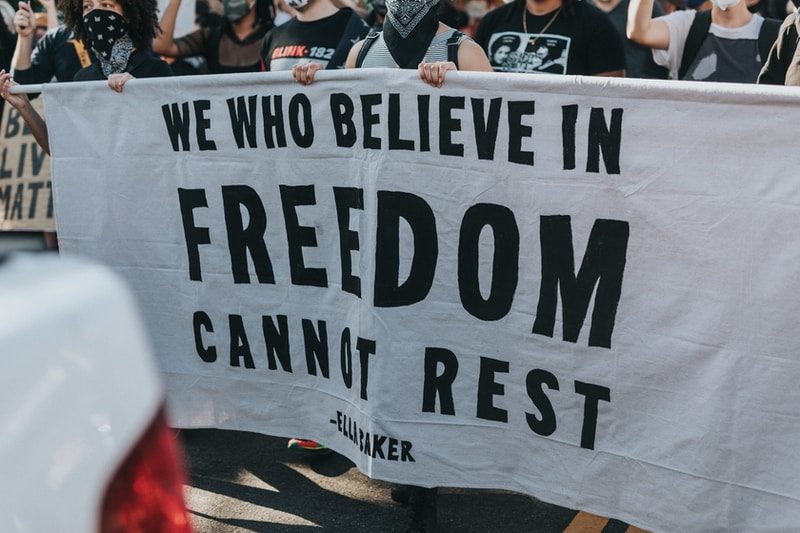Bishop Bard, during the 2021 Annual Conference, issued the following challenge: “I invite every Michigan United Methodist congregation to engage in a study in the coming year dealing with intercultural competence, racism, or racial reckoning.”
Click here to read more from the ABAR Working Group about this challenge.
Not sure where to begin?
If you determine your congregation is ready to have a conversation about race and racism, we recommend these introductory resources:
- Courageous Conversations About Race
- Racial Justice Conversation Guide
- 8 Ways Church Leaders Can Move the Conversation Forward
Looking for more information? Check out our additional resources below or fill out this form to be contacted by a member of the ABAR Working Group.

Best Practices for Anti-Racism Work
The National Plan of Hispanic Ministry of The United Methodist Church taught, for many years, a process called “See. Discern. Act.” Based on the practices of Latin American base ecclesial communities in the late 20th century, it was a circular design process for creating new ministries centered in community, grounded in empathy and discernment, focused on action, and attentive to reflection in order to begin the next round of ministry. It is a helpful model for starting any new ministry initiative.
Community
- Gather a Team -- gather at least two or three other people to be your core team.
See
- Honestly assess and prayerfully discern the readiness of your team and your congregation/community.
- Be aware of what is already happening in your community and who you might partner with.
Discern
- Establish the “why” for your work? Why are we doing this? What is our goal?
- Choose to engage anti-racism in way that does good, does no harm, and stays in love with God. Ask honestly, “what is our congregation ready for?”
Act
- Do Something. Once you discern the best way to engage and have a plan, get started.
- Be clear in your invitation and communication to participants.
- Be prepared to “pivot” and change direction, approach, focus as needed.
Prepare for the Next Round
- Reflect on what you experienced, learned, felt.
- Repeat the process to determine the next step in your journey.
Additional United Methodist Resources for Dismantling Racism
Meaningful Conversations About Race
Building the Beloved Community
Preaching Courageously Against Racism
Equity vs. Equality: Understanding the Differences
United Methodist Women Racial Justice Manual
5 Ideas for Stewardship for Churches Seeking to be Actively Anti-Racist
Praying for Change: Daily Prayers for Anti-Racism
Called to Witness, Care, and Act: A Message for Laity in The United Methodist Church
De-Colonizing the Church: A Commitment to Anti-Racism (Webinar Series)
Coming Soon: A full catalogue of resources to launch in August 2021.
Last Updated on October 31, 2023

